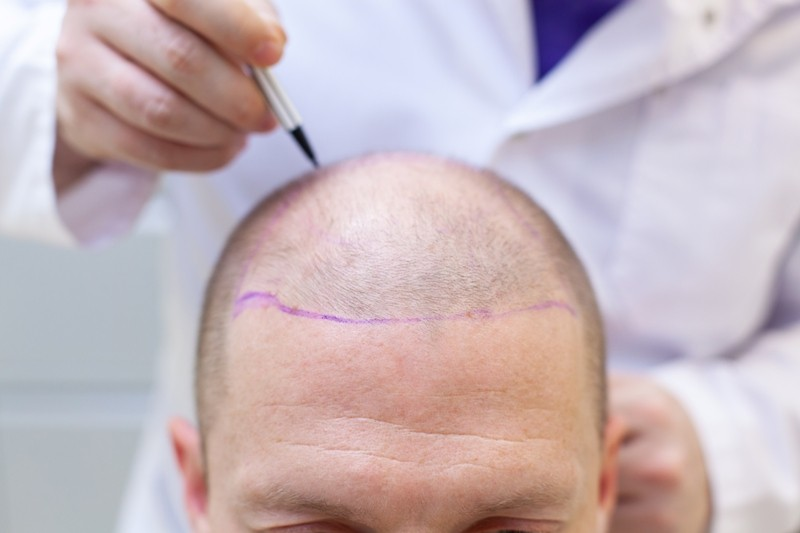
Hair transplantation has emerged as a popular solution for individuals experiencing hair loss, offering a way to restore natural-looking hair growth. As advancements in technology and surgical techniques continue to improve, many people are considering this option to regain their confidence and youthful appearance. However, the decision to undergo a hair transplant is a personal one, influenced by factors like cost, potential outcomes, recovery time, and the individual’s expectations. In this article, we will explore whether hair transplantation in Ajman(زراعة الشعر في عجمان) is a worthwhile investment, examining the procedure, its benefits, potential drawbacks, and who is most suitable for it.
Understanding Hair Transplantation:
Hair transplantation is a surgical procedure that involves relocating hair follicles from a donor area (usually the back or sides of the scalp) to areas where hair thinning or baldness has occurred. The most commonly used methods are Follicular Unit Extraction (FUE) and Follicular Unit Transplantation (FUT). FUE involves extracting hair follicles individually, while FUT removes a strip of scalp and then segments it into grafts. Both methods aim to create a natural-looking hairline and fullness, but they have their pros and cons.
The Benefits of Hair Transplantation
Natural-Looking Results:
One of the primary benefits of hair transplantation is its ability to produce natural-looking results. Unlike other hair loss treatments like topical medications or over-the-counter solutions, a hair transplant can restore hair growth in areas where it has been permanently lost. When performed by skilled surgeons, the transplanted hair can seamlessly blend with existing hair, creating a natural appearance that does not require ongoing maintenance.
Permanent Solution:
Unlike other temporary treatments like hair growth shampoos or topical minoxidil, a hair transplant offers a permanent solution to hair loss. Once the transplanted hair follicles are established, they continue to grow for the rest of the individual’s life. This means that with proper care, the results can be long-lasting and require little to no follow-up intervention after the initial recovery period.
Boost in Confidence and Self-Esteem:
Hair loss can have a significant psychological impact, affecting self-confidence and self-esteem. For many individuals, undergoing a hair transplant can help restore their self-image and improve their overall quality of life. This boost in confidence can extend to various aspects of personal and professional relationships, allowing individuals to feel more comfortable and self-assured.
Potential Drawbacks of Hair Transplantation
High Cost
One of the most significant drawbacks of hair transplantation is its cost. The procedure can be expensive, depending on the number of grafts, the complexity of the surgery, and the experience of the surgeon. While the results are permanent, the upfront cost can be a barrier for many individuals. Some may also require additional sessions in the future, adding to the overall expense.
Recovery Time and Pain:
The recovery process after a hair transplant can take several weeks, during which individuals may experience discomfort, swelling, and temporary scabbing. The healing period varies from person to person, and there is a risk of infection or scarring. In addition, some patients may experience numbness, itching, or tingling in the scalp during the recovery period.
Limited Donor Hair Availability:
The effectiveness of a hair transplant is directly related to the availability and quality of donor hair. Individuals with limited donor hair density may not be suitable candidates for a transplant, as there might not be enough hair to cover the thinning or bald areas effectively. In such cases, non-surgical treatments or alternative options may be more appropriate.
Results May Take Time:
While some individuals see immediate results from their hair transplant, for most, it can take several months for the transplanted hair to start growing. Full results are usually visible after 12 to 18 months post-surgery. Patience and consistent follow-up care are essential for achieving the desired outcome.
Is Hair Transplantation Worth It?
The decision to undergo a hair transplant should be based on individual circumstances, including hair loss pattern, donor area density, expectations, and financial considerations. For some, the investment in a hair transplant is well worth it due to the natural-looking results and the permanent solution it offers. However, for others, non-surgical alternatives like hairpieces, wigs, or other hair restoration treatments might be more suitable and cost-effective.
Who Is an Ideal Candidate for Hair Transplantation?
Men and Women with Androgenetic Alopecia (Pattern Baldness): Individuals experiencing common pattern baldness (e.g., receding hairline, thinning at the crown) are the most suitable candidates.
Those with a Good Donor Area: A dense and thick area at the back and sides of the scalp is ideal for transplanting hair follicles.
Healthy Individuals without Medical Conditions: Good overall health is essential to reduce complications and ensure optimal healing.
Realistic Expectations: It’s crucial to have realistic goals and understand that a hair transplant won't replicate the original hair density or cover every balding area completely.
Making an Informed Decision:
When contemplating hair transplantation, individuals must weigh the benefits against the potential drawbacks and costs. Consulting with a reputable, experienced surgeon and understanding all aspects of the procedure, including recovery, expected results, and long-term maintenance, is vital. It’s also important to consider lifestyle changes and maintenance practices that can enhance the outcomes post-surgery.
Conclusion:
Hair transplantation can be a valuable investment for those seeking a natural and permanent solution to hair loss. It offers significant psychological and aesthetic benefits, enabling individuals to regain their confidence and achieve a fuller, more youthful appearance. However, it is not suitable for everyone, and careful consideration is necessary before deciding to undergo the procedure. Factors such as cost, recovery time, available donor hair, and realistic expectations play a critical role in determining whether hair transplantation is worth the investment. For those who meet the criteria and are committed to following post-procedure care, a hair transplant can be an effective and worthwhile solution for hair loss.













